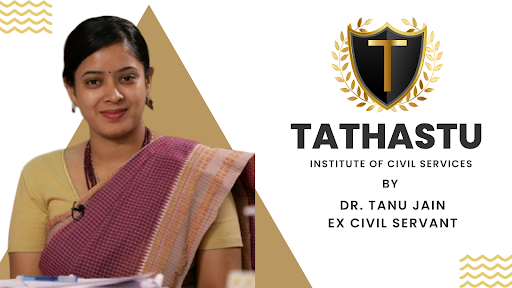Last Updated on March 5, 2024 by admin
UPSC Syllabus is an integral part of Civil Services Examination preparation. It serves as a guideline for Prelims, Mains, and Interview examinations and Interview preparation.
Preliminary Exam: To begin the recruitment process, there is an initial MCQ-based screening test – General Studies Paper 1 and Civil Services Aptitude Test (CSAT) Paper 2. Results do not impact final rankings.
General Studies Paper 1
UPSC Syllabus‘ GS Paper 1 addresses topics of history, geography, art and culture, Indian economy and society and world affairs. To properly prepare for GS Paper 1, aspirants must familiarize themselves with each of these subjects by reading textbooks or other reference materials on these subjects as well as reading newspapers or watching news channels online for current affairs coverage. It’s recommended that aspirants practice past papers and mock tests regularly in order to improve timing and understand question structure better.
Aspirants for GS Paper 1 should pay particular attention to subjects which can lead to direct questions. History-related GS Paper 1 questions often pertain to ancient, medieval and modern Indian history and world history – direct questions can also be posed about Indian society and geography which must provide answers that address current events effectively in order to answer questions effectively.
Since 2011, UPSC Exam aspirants must pass General Studies Paper 2 of their examination – worth 250 marks and comprising 20 questions both written in Hindi and English to qualify as qualifying papers – in order to take part. Any question answered outside this language range will not be evaluated.
General Studies Paper 2
The Union Public Service Commission (UPSC) conducts the Civil Services Exam or IAS exam to recruit officers for various government jobs. This exam consists of three stages, with Prelims as written exam and Mains being an oral one. UPSC Syllabus’ General Studies 2 paper covers an expansive spectrum of topics such as governance and polity, international relations and social justice. When preparing for this paper it is essential to focus on current affairs while practicing writing answers as well as memorizing important facts like articles in newspapers, schedules or amendments that could assist your preparation. Reading newspapers regularly is also key as is keeping abreast with forthcoming events.
GS 2 of the UPSC Syllabus tests your logical reasoning and analytical ability. Questions in this section cover topics from history, geography, economics and political science; in addition to this it’s important to stay abreast of recent news events since many questions on these subjects will appear during Civil Services Examination.
Aspirants for civil services examinations should prepare thoroughly for this subject as it is an extensive and challenging paper to pass. Candidates should start by reviewing NCERT books of class 11 and 12, in addition to consulting M Laxmikant’s book ‘Indian Polity for Civil Services Examinations. Furthermore, an hour should be dedicated daily towards reading newspapers and keeping up-to-date on current affairs.
General Studies Paper 3
This paper contains topics on economic development, technology, biodiversity, environment, security and disaster management that challenge candidates’ ability to write effective essays and express their thoughts clearly. To prepare effectively for this examination paper it is vitally important to thoroughly understand the UPSC mains syllabus as well as creating an efficient study plan. Furthermore it is vitally important that candidates keep abreast of news developments on these subjects.
Candidates preparing to sit this exam should read a variety of books to prepare. Short notes on each topic can also help them memorize quickly and effectively, while practice writing essays will boost score performance and help increase ranks dramatically.
Civil Services Aptitude Test or CSAT, is the preliminary examination for UPSC exams. Consisting of two objective-type papers and designed as qualifying examinations, to pass this exam candidates must score at least 33% or 66 marks to qualify. Exam will evaluate knowledge and understanding in various aspects of Indian and world history, culture, society geography polity economics governance. CSAT exams can be taken in any language chosen on application form and for more details regarding its syllabus check out this link article.
Optional Subjects
Selecting an effective optional subject can greatly enhance your chances of passing the UPSC Civil Services Examination (CSE). In order to make an informed decision, it is crucial that you fully comprehend all criteria to consider when selecting an optional subject.
Opt for a Subject That Interests and Aligns With Your Strengths
Selecting an area of study that both engages you and is consistent with your abilities can keep the preparation process on track and increase motivation throughout. Prior knowledge in the subject area will provide an added edge as it gives a firm grasp of its concepts.
Scoring Potential
Examining past year question papers of your subject in order to gain an understanding of its scoring pattern and trends. Some subjects may be easier than others when it comes to scoring; this shouldn’t be used as the sole criterion when making your choice.
Consider whether coaching institutes and guidance for your chosen optional subject are available and structured accordingly for successful preparation. Engage in extensive revision and answer writing practice using previous year question papers and mock tests as a source for guidance.
Integrate credible sources into your answers to enhance the credibility of your arguments, such as books, articles, indices, surveys or the recommendations of an established committee. Doing this will enhance the quality of your answers and increase your chance for a higher score during an examination.

















